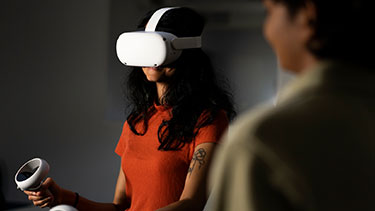Semester 1
Academic English
This module focuses on speaking and listening, reading and vocabulary, writing and grammar, and academic writing. The aim is to build your confidence in communication.
Numeracy Skills
You will gain basic skills in counting, solving number problems, measuring, estimating, sorting, noticing patterns, and adding and subtracting numbers.
Study Skills
This module will teach you how to effectively absorb, comprehend, process, and retain information within a learning context. You will learn strategies and techniques to enhance your learning capacity to succeed in higher education. Topics will include: avoiding plagiarism, managing your time, reading, note taking, referencing and revision.
Seminar Sessions (Employability)
TBC
Semester 2
Interactive Learning Skills and Communication
Throughout this module, you will learn the academic skills needed for success at a UK university, such as:
- Time management
- Public speaking techniques
- Appropriate language styles
- Professional communication and presentation
- Researching and referencing techniques.
Composition and Style
This module will define the core principles of effective academic writing, including:
- How to argue a position coherently and appropriately
- Distinguishing between descriptive and analytic writing
- Identifying academic systems of researching and referencing.
Critical Thinking
You will be introduced to the fundamentals of critical thinking. You will learn how to examine and comment on components of an argument, so that you can develop a structured and analytical response.
Numerical Techniques 1
This module will introduce you to basic mathematics and mathematical applications – including equations, algebraic problems and trigonometry.
Semester 3
Mass Communications
This module will introduce you to the core concepts and principles relevant to mass communications, including some of the major theories.
Numerical Techniques 2
This module covers a variety of numerical techniques associated with basic number theory, including:
- Cartesian coordinates
- Indices
- Logarithms
- Polynomial, quadratic and simultaneous equations
- Geometric progressions.
ICT Skills
This module will introduce you to the concepts of ICT skills, including applications and reporting mechanisms.
Globalisation
You will explore how the concept of globalisation has evolved, looking at:
- The economic, political, technological and social forces involved
- Local/regional beliefs that become global.

